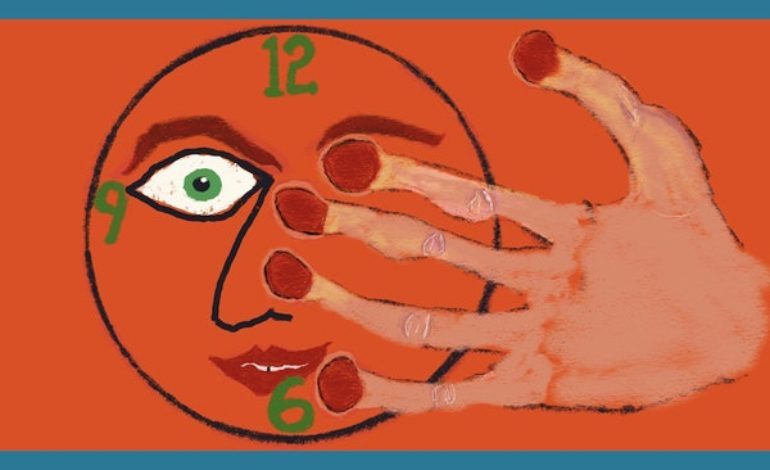

Neo-noir nostalgia
Black-rimmed frames and an exploratory music style are perhaps two things that elevated Elvis Costello. The panache and intrigue of this Brit’s younger years remain in his newest endeavors, but with an aged bitterness which comprises the integrity of the American song.
Costello’s newest creation, Hey Clockface, is periodically brilliant. An ode to the ever so ticking clock of the world rounding the clockface for another hour, this album is scattered with motifs and messages of an older soul. Costello’s often youthful music has slightly aged, with an added self-realization of life itself. His delicate approach to this album is extraordinary as a coronavirus triumph, recorded in Helsinki, Paris and New York City.
The album’s elegiac introduction “Revolution #49,” is an Arabic-like, melodramatic ode to something sinful. But it is quickly trampled by “No Flag,” which broadens Costello’s rock ’n’ roll repertoire into the year 2020. A certain unhinged swank remains in this track from his older classics.
“They’re Not Laughing At Me Now” takes a sumptuously elegant turn, with the wave-like progression of the vocals, cellos and an improvised brass section. Stuttered until slowed down, this song reveals the album’s sorrow with the disheartening nature of a clock that will not slow down itself. In a similar style are “The Whirlwind” and the album’s clincher, “Byline,” transcending the sadness of a rainy window into sonic form. The drama remains with “What Is It That I Need That I Don’t Already Have?,” though all of these songs reaffirm Costello as one of the masters of his craft.
“Newspaper Pane” has that gramophonic vibration, almost needing to be intertwined with the soundtrack of a neo-noir film. “I Do (Zula’s Song)” is the next scene, perhaps a rainy evening with suffocating cigarette smoke set in a dim London bar. The horn section carries the track, mixed with the lonesome vocals of a man broken down.
A mix of swing and vocal jazz, “Hey Clockface / How Can You Face Me?” describes the intrapersonal connection between man and clock many people have felt in this isolation-forced time. A trumpet mute sets the tone, carried with rapid chord changes and a metronomic rhythm. Costello added a creative intimacy to this song, one worth relistening to. Its jazzed brother, “I Can’t Say Her Name,” is from another era, one of unrestricted smoking and unlimited musical talent.
From the far-left field, “Hetty O’Hara Confidential” is the obscure tale of an outdated columnist overcome by mass opinion. This track’s virtual smorgasbord of musical elements and beatboxing–yes, the Elvis Costello beatboxes–is the album’s black sheep. But returning the album to darkness follows “The Last Confession of Vivian Whip,” a song of mourning if there ever was one.
Costello’s noirish motifs seem to return every few moments in different elements. For instance, the mannered lyrical tropes of “Radio is Everything” are excessive at best. Though when fused with music, it is alternately sentimental, almost dystopian in sound.
The American tradition is tested within Hey Clockface. Stretched and pulled to exertion, Costello subtly adds his motifs within this cascading story of many emotions. Singing about the decline of many characters, it seems as if this self-conscious creation is foreshadowing something greater for Costello. His killer, however, is time (and that damned clockface).
